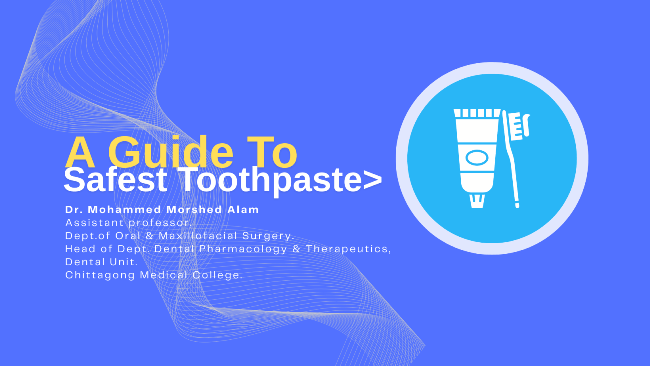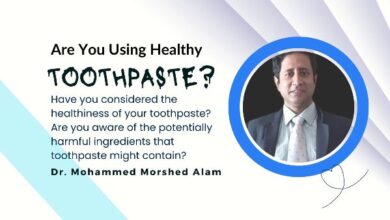Safest Toothpaste Options: Your Guide to Top Picks for Oral Health
Which Is the Safest Toothpaste? A Guide to Choosing the Best for Your Oral Health

Toothpaste is a vital part of our daily oral hygiene routine, helping to maintain clean teeth, fresh breath, and healthy gums. However, with a myriad of toothpaste options available on the market, consumers are increasingly questioning which toothpaste is the safest. Concerns about potentially harmful ingredients and misleading claims have made selecting the right product more complicated.
This guide explores what makes “a toothpaste safe” highlights ingredients to look for and avoid, and provides practical advice for choosing the best toothpaste for your needs.
What Makes Toothpaste “Safe”?
A safe toothpaste is one that effectively cleans and protects teeth without exposing users to harmful ingredients. It should meet key standards for safety, efficacy, and quality, as set by regulatory bodies like the American Dental Association (ADA) or Food and Drug Administration (FDA).
Key Functions of Toothpaste
- Preventing cavities: By removing plaque and strengthening enamel.
- Promoting gum health: With antibacterial properties.
- Ensuring safety for long-term use: Without harmful effects on teeth, gums, or overall health.
Ingredients to Look for in Safe Toothpaste
Beneficial Ingredients
- Fluoride: The gold standard for cavity prevention, strengthening enamel and reversing early decay.
- Xylitol: A natural sweetener that reduces harmful bacteria in the mouth.
- Calcium phosphate: Aids in enamel remineralization.
- Essential oils: Such as peppermint and tea tree oil for natural antibacterial properties.
Fluoride, in particular, has been extensively researched and proven effective for preventing cavities. However, the amount used must be appropriate, especially for children, to avoid the risk of fluorosis.
Ingredients to Avoid
Controversial or Harmful Substances
- Sodium Lauryl Sulfate (SLS): A common foaming agent that may cause irritation in sensitive individuals.
- Triclosan: Banned in some countries due to potential links to hormone disruption.
- Artificial sweeteners and dyes: Can act as allergens or irritants.
- Parabens: Suspected to interfere with hormonal balance.
- Microplastics or polyethylene: Harmful to the environment and potentially to health.
Natural vs. Synthetic Debate
While natural toothpastes avoid synthetic chemicals, they can sometimes lack clinically proven efficacy. It’s essential to verify claims and ensure that they meet safety standards.
Popular Toothpaste Types and Their Safety Profiles
Fluoridated Toothpaste
- Pros: Scientifically proven to prevent cavities and strengthen enamel.
- Cons: Risk of excessive ingestion in children if not used correctly.
Natural Toothpaste
- Pros: Free from synthetic chemicals, often includes plant-based ingredients.
- Cons: May be less effective than conventional toothpaste if not clinically tested.
Charcoal Toothpaste
- Pros: Claims of whitening and detoxification.
- Cons: Highly abrasive, potentially damaging enamel with regular use.
Whitening Toothpaste
- Pros: Contains ingredients like hydrogen peroxide for stain removal.
- Cons: Prolonged use may cause tooth sensitivity.
Toothpaste for Sensitive Teeth
- Pros: Contains desensitizing agents like potassium nitrate or stannous fluoride.
- Cons: May take time to show noticeable results.
Regulatory and Certification Standards
Toothpaste bearing the ADA seal has been evaluated for safety and efficacy. This seal provides a reliable benchmark for consumers.
Country-Specific Guidelines
Different regions have varying standards for toothpaste ingredients, such as the European Union’s stricter regulations compared to the United States.
Organic and Eco-Friendly Certifications
Look for certifications that ensure natural toothpastes meet safety standards while being environmentally responsible.
Choosing the Right Toothpaste
For General Use
- Select fluoridated toothpaste for everyday cavity prevention.
For Children
- Use fluoride-free or low-fluoride options to prevent fluorosis.
For Sensitive Teeth
- Opt for formulas with potassium nitrate or stannous fluoride.
For Whitening
- Use sparingly and ensure safe concentrations of whitening agents.
For Allergies or Specific Concerns
- Choose allergen-free natural toothpastes with minimal additives.
Tips for Safe Use of Toothpaste
- Use the Right Amount: Adults should use a pea-sized amount, while children require even less.
- Brush Properly: Twice daily with gentle, circular motions.
- Avoid Swallowing: Teach children to spit out toothpaste after brushing.
- Store Safely: Keep toothpaste in a clean, dry place and out of children’s reach.
Final Words
Choosing the safest toothpaste involves understanding its ingredients, intended use, and regulatory approvals. While fluoridated toothpaste remains the most effective for cavity prevention, natural and specialized options cater to specific needs like sensitivity and allergies.
Consumers should read labels carefully, prioritize clinically proven products, and consult their dentist for personalized recommendations. By making informed choices, you can maintain optimal oral health while avoiding unnecessary risks.
Written By √
Dr. Mohammed Morshed Alam, Assistant professor, Dept. of Oral & Maxillofacial Surgery. Head of Dept. Dental Pharmacology & Therapeutics, Dental Unit. Chittagong Medical College. Email:morshedalam045973@gmail.com Mobile: 01717 045973



